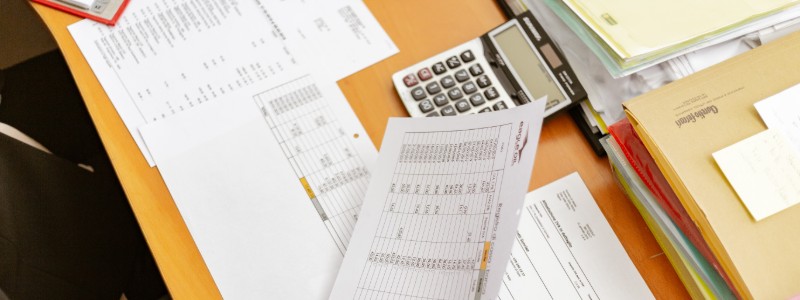What to Do When You Get a Surprise Medical Bill
It’s always a shock when you’ve received medical treatment and you get a surprise medical bill that the hospital claims is your responsibility to pay. 1 in 6 Americans receive a surprise medical bill after an in-network hospital stay. Surprise medical bills have nearly become expected as hospitals allow more and more out-of-network physicians into […]

March 29, 2017

It’s always a shock when you’ve received medical treatment and you get a surprise medical bill that the hospital claims is your responsibility to pay. 1 in 6 Americans receive a surprise medical bill after an in-network hospital stay.
Surprise medical bills have nearly become expected as hospitals allow more and more out-of-network physicians into their emergency rooms, according to Consumer Reports. Nearly two-thirds of healthcare professionals in emergency rooms are independent contractors. That means you can’t assume that they’re on your network just because the hospital itself is.
Surprise medical bills are always a nightmare. It can be even worse if you receive one after being injured in a car accident. Not only are you fighting with your insurance company for a fair car accident settlement, but now you have an exorbitant bill for treatment that you didn’t even ask for.
Can I Prevent Surprise Medical Bills?

Surprise medical bills happen when you receive treatment from out-of-network professionals. If you need medical care after a car accident but aren’t able to choose where you were treated, or if you don’t have the ability to check if your physicians are in network, it may be impossible to prevent a surprise medical bill.
Out-of-Network Emergency Services
Many people are aware that ambulance rides can be costly, but they don’t know that emergency rooms can be surprisingly expensive as well.
The costs start racking up the moment you call 9-1-1. The dispatcher will send the closest ambulance, which may or may not be within your insurance network, to the scene of your car accident. If someone calls an ambulance for you and you don’t need it, you may not be charged. But if you take an ambulance and your insurance deems the ride unnecessary, you may be on the line for a substantial bill.
Once the ambulance picks you up, the EMTs will then race you to the closest hospital, which again may or may not be in your insurance network. They likely won’t listen to a request for an in-network hospital if it’s farther away and you’re having a medical emergency.
Insurance companies can raise deductibles by thousands of dollars by excluding emergency physicians from their network. Emergency physicians are bound by oath to treat any patient, regardless of their ability to pay, and have little to no influence on how the insurance companies bill for their services.
Out-of-Network Doctors
The Affordable Care Act ensures that your co-pay can’t be higher than your in-network rate even at an out-of-network hospital if you need emergency healthcare. However, the law doesn’t prohibit out-of-network physicians from billing you afterward.
It’s not enough to ask the physician who is immediately attending to you whether or not they’re in your network. You may receive medical care from someone you never meet, like a pathologist in a lab. Or you may be treated by an out-of-network anesthesiologist while you’re undergoing surgery. Out-of-network physicians can include radiologists and even surgical assistants, according to the Kaiser Family Foundation. If you’re unconscious or even delivering a baby, you won’t necessarily be able to check if every physician who treats you is in your network.
It’s a good idea to have a family member or friend come with you to the hospital so they can ask questions while you focus on receiving care. Your companion can request in-network physicians while they fill out paperwork to admit you to the hospital, and they can make sure you have all of your paperwork and itemized bills when you’re discharged.
I Received a Surprise Medical Bill – Now What?

Hopefully, surprise medical bills will be less of a burden on American families thanks to the second COVID-19 relief bill that was passed in 2020. The legislation will:
- Prevent private insurance companies from billing customers out-of-network prices for emergency medical treatment, even if they were treated by a doctor or at a facility that is out-of-network
- Enforce a 72-hour advance notice of any out-of-network charges, protecting customers who cannot consent to charges for out-of-network anesthesiologists or doctors who may get involved during a scheduled procedure at an in-network facility.
- Prevent air ambulances from charging more than in-network sharing costs.
Surprise billing for ground ambulances was not covered in the relief bill. Local governments are usually in charge of ambulatory services and there is little data on the actual cost of ambulance rides, so adding legislation to the bill seemed like too great a task.
The legislation will not go into effect until January 2022. Until then, if you haven’t been able to guarantee treatment from only in-network healthcare providers, you’ll likely receive one of those unpleasant surprise medical bills.
First, make sure the bill is accurate and that you received every service listed on the invoice. You don’t want to ask your insurance to pay for a service you never received.
Next, don’t pay anything until you receive an explanation of benefits (EOB) from your insurer. This will lay out what your insurance will cover and what will be left for you to pay. Your insurer may be willing to cover whatever expenses remain. If not, ask those healthcare providers who are billing you if they’d be willing to settle for what your insurance covers.
If no one is willing to negotiate and you can prove that your treatment was medically necessary, consider filing an appeal with your insurance company.
What if I Can’t Pay the Out-of-Network Charges?

Wrestling with your insurance company is exhausting. If you’ve been injured in a car accident and are recovering from a serious injury, you might not have the physical or emotional energy to deal with it.
But if you don’t pay off the bill, the hospital will send the unpaid bill to debt collectors, who will then hound you with letters, phone calls, emails and even visits to your house until the bill is paid — and even sometimes after that.
The settlement from your personal injury claim should include enough money to cover your medical bills. Unfortunately a claim can take two years to settle, or more if you go to court. You may compare your bill’s due date to your claim timeline (which can take up to two years) and wonder, “How on earth can I make this work?”
It’s tempting to settle as soon as possible so you can use the money to pay off the surprise bill and avoid dealing with debt collectors. But you can only settle once. And if you settle too soon, you run the risk of not getting enough money for future treatments, physical therapy, or pain and suffering.
The good news is that if you have a personal injury attorney, they may be able to help.
Help from an Indiana Personal Injury Attorney

Your personal injury attorney is your advocate and guide through the claims process. If you are surprised by an out-of-network bill, your attorney can:
- communicate with insurance and health care providers on your behalf
- recommend doctors who work on liens, or will treat you with the promise of payment after a settlement has been reached
- negotiate down the cost of the surprise medical bill
- keep all of your medical bills organized and up-to-date
When you have a medical emergency, you should be focused on getting better, not dealing with the insurance company or surprise medical expenses. The experienced attorneys at Hensley Legal Group can help. Call or contact us online for a free case review, and download our free book, Consumer’s Guide for Injured Victims.